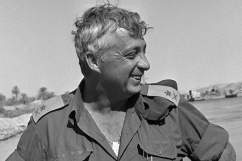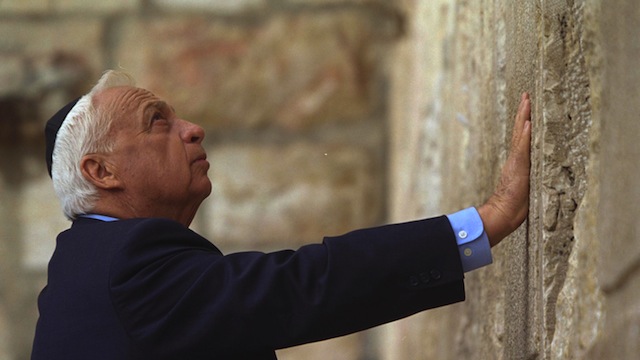
(Getty)
Former Israeli Prime Minister and Defense Minister Ariel Sharon died today at the age of 85. The controversial statesman has been fighting illnesses since his first serious stroke in 2005.
His immediate cause of death was renal failure, a shutdown of his kidneys, which caused his rapid decline in health earlier this month. Sharon served as Prime Minister of Israel until a second stroke caused his vegetative state starting in 2006.
1. He Has Been in a Coma Since 2006
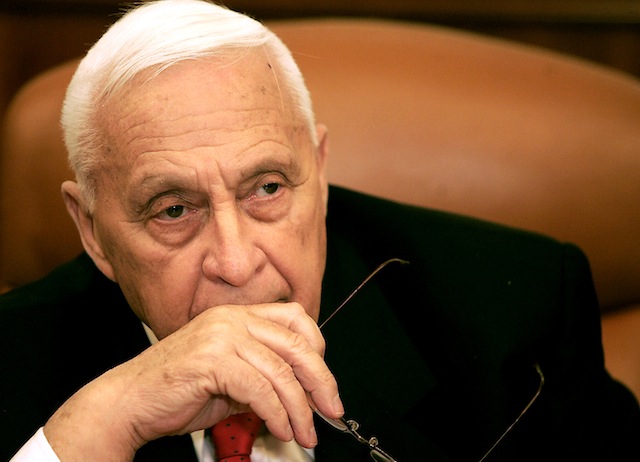
(Getty)
Sharon suffered a mild stroke in 2005, but continued his tenure as Prime Minister. However, in 2006, he became incapacitated and slipped into a vegetative state after a devastating brain hemorrhage.
Sharon has become momentarily and slightly responsive over the years, but has been connected to a respirator for the last eight years.
2. His Condition Worsened January 1, 2014
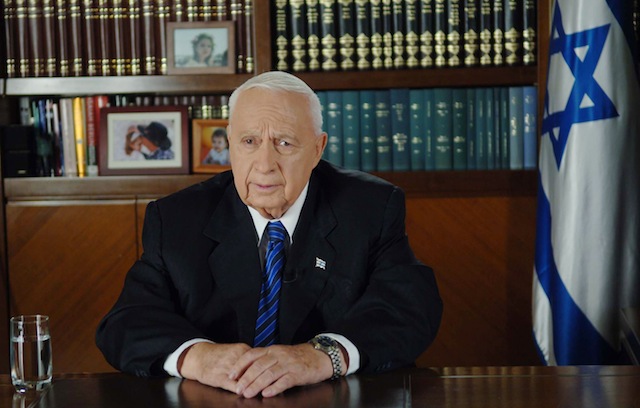
On January 1, news agencies around the world began reporting that Sharon’s health had suddenly become worse. Israeli news outlet Haaretz reported that his physical condition had deteriorated and that Sharon is suffering from renal failure, or a shutdown of the kidneys.
The hospital said that his death would come in a “matter of days” if the deterioration continued.
3. He Was Born in British Palestine in 1928
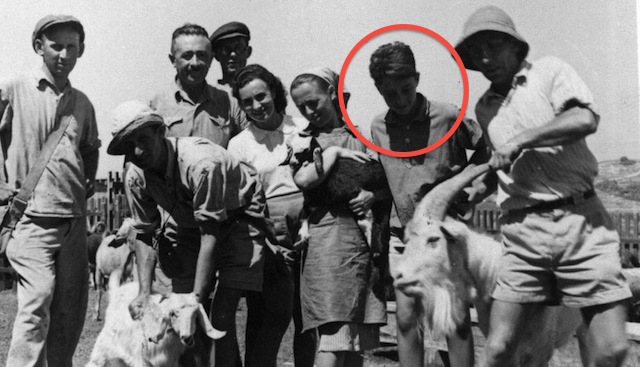
Sharon at age 14. (Wiki Commons)
After the Russian Bolshevik revolution of 1917, Sharon’s family of Belorussian Jews fled to Israel, what was then British controlled Palestine.
Sharon was born in 1928 in an area called Kfar Malal, which you can see below. After finishing high school in 1945, Sharon became interested in Zionism and, according to CNN, became a full time solder in a para-military Israeli independence group called Haganah.
4. He Fought in the Israeli War of Independence
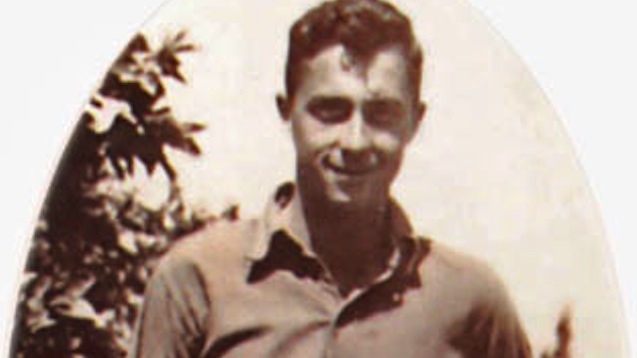
Sharon in 1948. (Wiki Commons)
In 1948, Sharon fought at the famed Battle if Latrun, where Israeli forces were defeated by Jordanian troops. In the battle, Sharon’s platoon was killed and he was seriously injured.
5. He Rose Through the Military Ranks to Become Minister of Defense
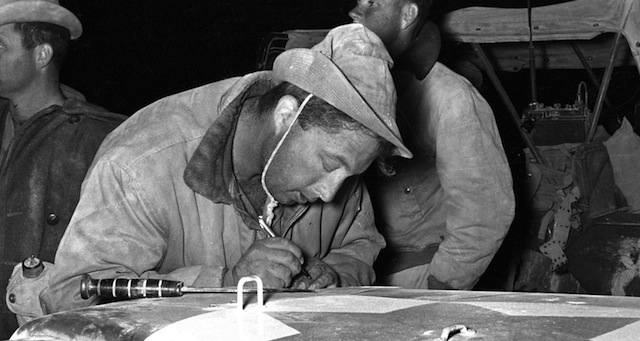
Sharon in 1956 as an officer in the Israeli army. (Getty)
After studying Middle Eastern history at the Hebrew University of Jerusalem, Sharon was brought back to the army to lead Unit 101, an elite special operations unit.
It was as the leader of this unit, tasked with carrying out reprisal raids across the Jordanian border, that Sharon earned his reputation as a fearless, and often brutal, commander.
Sharon, who was made a Major when he took command of Unit 101, became a Major General by the Israel’s Six-Day war against Egypt in 1967.
6. He Was Found Responsible for the Sabra-Shatila Massacres
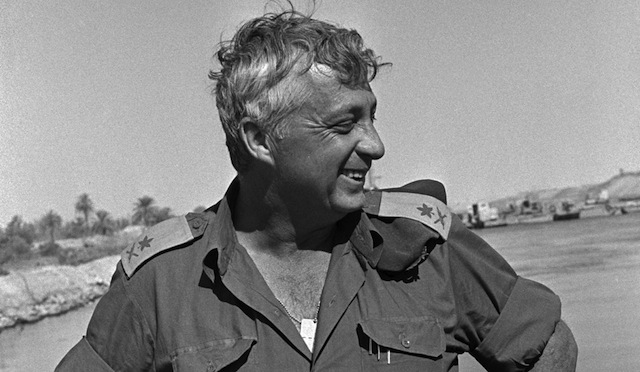
(Getty)
As minister of defense, Sharon was the “principal architect” of the 1982 invasion of Lebanon.
In September 1982, Phalangists, a Lebanese-Christian militia, entered the Shabra and Shatilia refugee camps and killed around 2,000 Palestinians.
The Kahan Report, an investigation into the massacre, found Sharon guilty of not taking necessary precautions to prevent the massacre. The report led to his resignation in February 1983.
7. He Held a Number of Important Political Positions
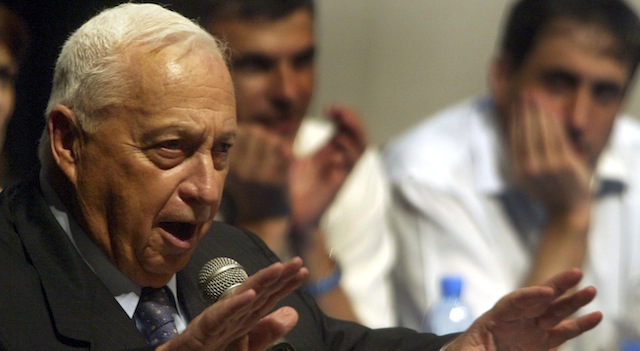
(Getty)
After his resigning from his position as minister of defense in 1982, Sharon became the minister of Industry, Trade, and Labor in September 1984.
Between 1984 and his election to the position of Prime Minister in 2001, Sharon served as the minster of housing and construction, the minister of energy and water resources, and the minster of foreign affairs.
8. He Served as Prime Minister from 2001 to 2006
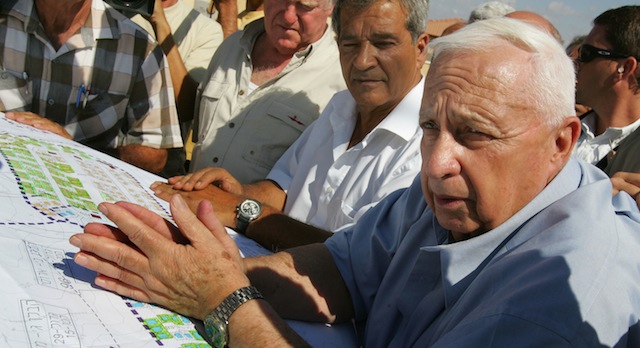
(Getty)
In a special election held in February 2001, Ariel Sharon, of the Likud Party, faced the the recently resigned Prime Minster Ehud Barak.
Sharon won the election with 62% of the vote. Barak came in second with 37%.
9. He Left the Likud Party to Found Kadima
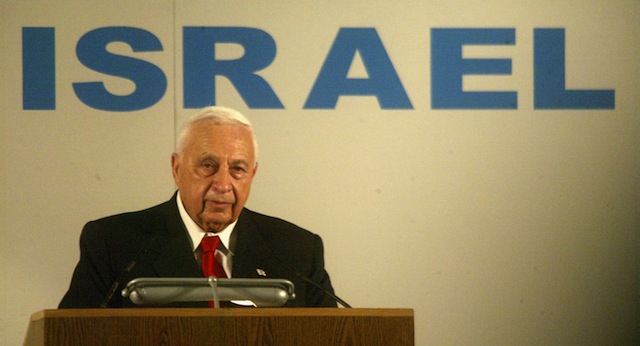
(Getty)
Sharon was loyal member of the conservative Likud Party for most of his career. However, in his final year in office as Prime Minster, Sharon faced fierce criticism from his party after his 2005 plan to stop Israeli settlement in the Palestinian controlled West Bank and Gaza Strip.
In 2005, Sharon founded the more moderate Kadima party. In 2006, Sharon was succeeded by his deputy and fellow Kadima party member Ehud Olmert.
10. His Legacy is Contested
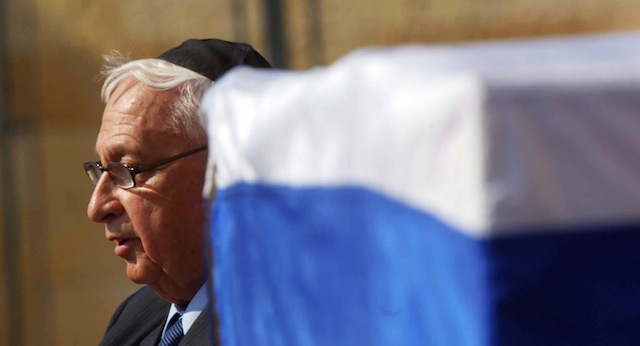
(Getty)
Known by some as a fierce defender of Israel and know by others as the “Butcher of Beirut,” Sharon’s legacy is debated around the globe.
